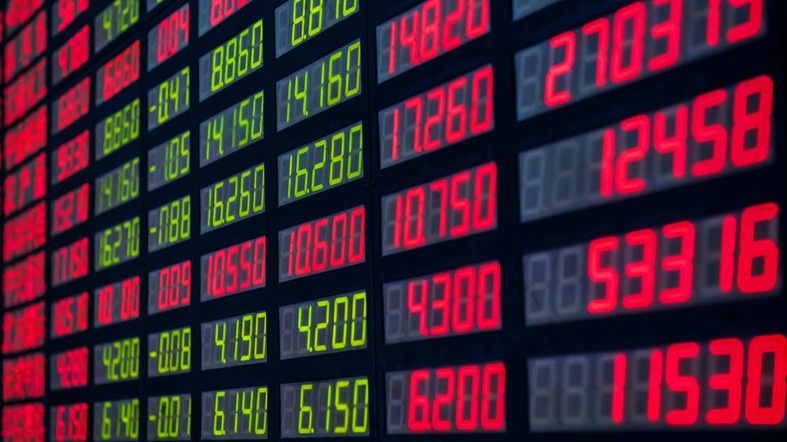- Nigerian Equities Market Will Grow 3.5% in 2017, Say Market Analysts
Despite opening the year with on a negative note, analysts at Meristem Securities Limited (MSL), an investment banking firm, have projected that the Nigerian stock market will close 2017 positively. The stock market has recorded three consecutive yearly fall, closing 2016 with a decline of 6.17, which was lower than what was recorded in 2014 and 2016. As at Friday, the market, measured by the Nigerian Stock Exchange (NSE) All-Share Index (ASI) has posted a negative return of 2.42 per cent.
However, in a special report on the economic and financial outlook titled: “In murky waters…wading through uncertainties,” analysts at MSL have said the NSE ASI will gain 3.49 per cent.
Explaining the performance of the market in 2016, they said in line with the lacklustre state of the economy amid fiscal and monetary policies misalignment, the NSE ASI closed 2016 “below waters” at – 6.17 per cent.
“Market breadth, which measures the number of price gainers relative to price losers in the year, settled at 0.39x, representing 30 gainers and 77 laggards,” they said.
According to them, market sentiments waned under continued pressure from a barrage of negative news flows such as, persistent inflationary pressure, and the paucity of foreign exchange (FX), which consequently led to the further depreciation of naira against major currencies.
This, they added, ultimately culminated to the country sliding into recession.
Speaking on the activities in the equities market in 2017, they said the market is expected to remain largely weak in the first half of 2017, on the back of subsisting macroeconomic uncertainties, while they anticipate a modest recovery towards the tail end of the year. “However, we note that market recovery is partly hinged on stability in the fx market and moderation in exchange rate gap between the interbank and parallel markets. Based on our mix of methodologies, we arrived at a 2017 index level of 27,812, 50, indicating a +3.49 per cent potential market return by December 31, 2017,” they declared.
The Chief Executive Officer of the NSE, Mr. Oscar Onyema had the previous expected optimism that the market will recover this year, disclosing some of the strategies that would be taken by the exchange to market the performance better.
Onyema noted that in the immediate future, the NSE will focus on achieving its goal of becoming a more agile and demutualised exchange and will fast track efforts towards developing innovative products such as exchange traded derivatives to provide investors with tools to better weather economic realities in 2017.
“We intend to strengthen our thought leadership efforts with policymakers to drive policies that will free up the system and promote the ease of doing business in Nigeria. We believe that incentive schemes for sectors of the economy that can support a pivot to export led economy will be beneficial and systematic removal of impediments to doing business and therefore reduction of leakages will attract private sector investments,” Onyema said.
He added that they expect to see a revival of supplementary listings, return of the new issuance market, and potentially one initial public offering (IPO) since the equity market is a forward indicator of the economy.


 Forex2 weeks ago
Forex2 weeks ago


 Naira2 weeks ago
Naira2 weeks ago
 Naira4 weeks ago
Naira4 weeks ago
 Company News4 weeks ago
Company News4 weeks ago
 Billionaire Watch1 week ago
Billionaire Watch1 week ago




 Naira2 weeks ago
Naira2 weeks ago




 Naira4 weeks ago
Naira4 weeks ago




 Naira1 week ago
Naira1 week ago





















